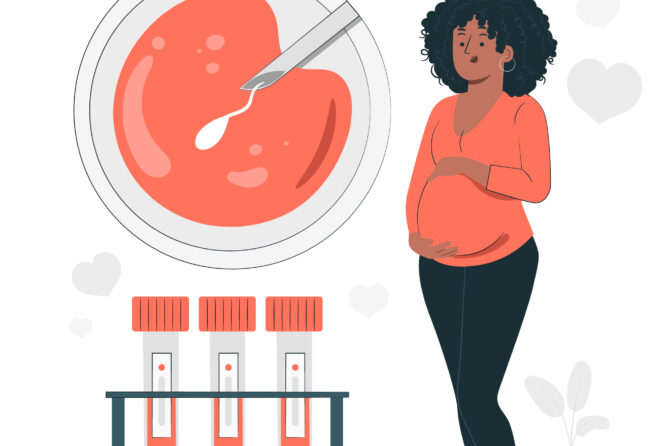
Causes of female infertility
Female infertility can result from various factors that affect the reproductive system. Here are some common causes:
Ovulatory Disorders: Conditions such as polycystic ovary syndrome (PCOS) or irregular ovulation can lead to difficulties in releasing eggs, affecting fertility.
Age-Related Decline in Fertility: Female fertility naturally declines with age, especially after the age of 35, due to a decrease in the quantity and quality of eggs.
Tubal Issues: Blockages or damage to the fallopian tubes can prevent the egg from meeting the sperm, hindering fertilization.
Uterine Abnormalities: Structural issues with the uterus, such as fibroids, polyps, or congenital abnormalities, can interfere with implantation or cause recurrent miscarriages.
Endometriosis: Endometriosis, a condition where tissue similar to the lining of the uterus grows outside the uterus, can lead to scarring and adhesions, affecting fertility.
Pelvic Inflammatory Disease (PID): Infections, particularly sexually transmitted infections like chlamydia or gonorrhea, can cause inflammation and scarring in the reproductive organs, impacting fertility.
Hormonal Imbalances: Imbalances in hormones such as estrogen, progesterone, and thyroid hormones can disrupt the menstrual cycle and ovulation.
Premature Ovarian Insufficiency (POI): POI occurs when the ovaries stop functioning normally before the age of 40, leading to a decline in egg quantity and quality.
Autoimmune Disorders: Certain autoimmune conditions, where the immune system mistakenly targets reproductive tissues, can impact fertility.
Cancer and its Treatments: Cancer and some cancer treatments, such as chemotherapy and radiation, can adversely affect ovarian function and fertility.
Unexplained Infertility: In some cases, despite thorough testing, the cause of infertility remains unexplained, which can be frustrating for couples seeking answers.
Lifestyle Factors: Smoking, excessive alcohol consumption, poor diet, stress, and obesity can negatively impact fertility by affecting hormonal balance and reproductive health.
Addressing female infertility often involves a comprehensive evaluation by a healthcare professional to identify the underlying cause. Depending on the diagnosis, treatments such as medications, surgery, assisted reproductive technologies (ART), or lifestyle modifications may be recommended to improve fertility outcomes.

These all factors are right, all are considerable.
ReplyI want to know why i cant conceive yet i have never used any contraceptives but i have ever had ectopic pregnancy
ReplyI am approaching 45 but i need a baby however i did scan last week and was told i have a fibroid measuring 20.7×19.3×24.3
Replyis there a way of treating it back to normal
I am40 years old, Have two children and experienced 2 miscourages the younger child is7 years old.is it possible for me to conceive again?as I need two more children
Replygood post
Reply